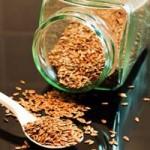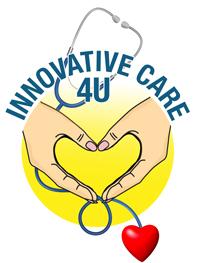These statements have not been evaluated by the Food and Drug Administration. These products and treatments are not intended to diagnose, treat, cure, or prevent any disease.

- STEM CELL SOLUTIONS Read More
- Natural RemediesNatural Cures You Can TrustRead More
- Cancer Detection and PreventionYour resource for Cancer Detection and Prevention.Read More
- Anti-AgingStaying vital as we get older.Read More
- Weight ManagementComing Soon…Read More
- CHOLESTEROL MANAGEMENT via PR LAB recommendation… Read More
- http://www.nytimes.com/2011/12/20/health/evidence-mounts-linking-acetaminophen-and-asthma.html?src=tp&smid=fb-share
- Evidence Mounts Linking Acetaminophen and Asthma www.nytimes.com
More than 20 studies, including a large analysis of data on more than 200,000 children, have produced results that link acetaminophen use to an increased risk of ASHTHMA - Cardiovascular
The Secret Way To Stop Heart Disease –
I thought you would be interested in this: The Secret Way To Stop Heart Disease – http://health.msn.com/health-topics/cholesterol/articlepage.aspx?cp-documentid=100288766#scptid
The Cholesterol Myths that May be Harming Your Health
Forget what you’ve been told about high cholesterol and heart disease – it’s based on statistical lies and cherry picked data, and the few studies that indicate a link also document a concurrent increase in deaths from cancer, brain hemorrhage and suicide…
MSN:10 Easy Food Swaps Cut Cholesterol Not Taste
10 Easy Food Swaps Cut Cholesterol Not Taste – – http://health.msn.com/health-topics/cholesterol/10-easy-food-swaps-cut-cholesterol-not-taste#scptid-page 1;Page 2 – http://health.msn.com/health-topics/cholesterol/10-easy-food-swaps-cut-cholesterol-not-taste#scptid
Surprising Facts About Cholesterol –
http://health.msn.com/health-topics/cholesterol/surprising-facts-about-cholesterol#scptmd
Flaxseed Slashes Cholesterol Levels-in men– http://www.worldhealth.net/news/flaxseed-slashes-cholesterol-levels/
Posted on 2010-04-16 06:00:00 in Cardio-Vascular | Fatty Acids, Lipids & Oils | Men’s Health |
 A good source of omega-3 fatty acids, flaxseed is high in ecoisolariciresinol diglucoside, a type of lignan, an antioxidant plant compound. Suzanne Hendrich, from Iowa State University, and colleagues enrolled 90 men and women, suffering from elevated cholesterol but otherwise healthy, in a twelve-week long study. Subjects were divided into three groups and randomly assigned to daily consume tablets that contained zero, 150, or 300 milligrams of flaxseed lignans. Men who consumed either quantity of flaxseed lignans reduced their cholesterol levels by 10%.
A good source of omega-3 fatty acids, flaxseed is high in ecoisolariciresinol diglucoside, a type of lignan, an antioxidant plant compound. Suzanne Hendrich, from Iowa State University, and colleagues enrolled 90 men and women, suffering from elevated cholesterol but otherwise healthy, in a twelve-week long study. Subjects were divided into three groups and randomly assigned to daily consume tablets that contained zero, 150, or 300 milligrams of flaxseed lignans. Men who consumed either quantity of flaxseed lignans reduced their cholesterol levels by 10%.
- Statin update–The truth about statins–new FDA warnings–slightly increased risk for memory loss (‘foggy memory’); increased blood sugar: and muscle aches/pains-(those in 200-240 may consider the options of staying on vs going off statins to lower cholesterol and risk of heart disease and stroke)-Note-Some Risk factors include-+being 65 or older.
- DiabetesRead More
 Manage symptoms with alternative treatments-Type 2 diabetes doesn’t just affect blood sugar and insulin secretion. It also can lead to a host of other problems including kidney damage, blood vessel thickening, nerve damage and pain. Find out more below about common alternative and complementary methods, vitamins, minerals, herbs and foods used to treat type 2 diabetes and other conditions associated with it.
Manage symptoms with alternative treatments-Type 2 diabetes doesn’t just affect blood sugar and insulin secretion. It also can lead to a host of other problems including kidney damage, blood vessel thickening, nerve damage and pain. Find out more below about common alternative and complementary methods, vitamins, minerals, herbs and foods used to treat type 2 diabetes and other conditions associated with it.
Type 2 Diabetes Remedies -Alternative Treatments for Type 2 Diabetes
Learn more about alternative methods to manage your blood sugar and avoid complications—Prevention.com [PVNAlertDiabetes@preventionnews.delivery.net]
Remedies A-B
In a double-blind study of people with diabetic neuropathy, supplementing with acetyl-L-carnitine was significantly more effective than a placebo in improving subjective symptoms of neuropathy and objective measures of nerve function. People who received 1,000 mg of acetyl-L-carnitine three times per day tended to fare better than those who received 500 mg three times per day.
Read more about Acetyl L-Carnitine
Two small controlled human trials have found that aloe, either alone or in combination with the oral hypoglycemic drug, glibenclamide, effectively lowers blood sugar in people with type 2 diabetes.
Alpha lipoic acid is a powerful natural antioxidant. Preliminary and double blind trials have found that supplementing 600 to 1,200 mg of lipoic acid per day improves insulin sensitivity and the symptoms of diabetic neuropathy. In a preliminary study, supplementing with 600 mg of alpha lipoic acid per day for 18 months slowed the progression of kidney damage in patients with type 2 diabetes.
Read more about Alpha Lipoic Acid
In a small pilot study, 3 grams of American ginseng was found to lower the rise in blood sugar following the consumption of a drink high in glucose by people with type 2 diabetes.
Read more about American Ginseng
Because oxidation damage is believed to play a role in the development of diabetic retinopathy, antioxidant nutrients might be protective. One doctor has administered a daily regimen of 500 mcg selenium, 800 IU vitamin E, 10,000 IU vitamin A, and 1,000 mg vitamin C for several years to 20 people with diabetic retinopathy. During that time, 19 of the 20 people showed either improvement or no progression of their retinopathy. People who wish to supplement with more than 250 mcg of selenium per day should consult a healthcare practitioner.
A double-blind trial found that 200 mg of Asian ginseng per day improved blood sugar levels in people with type 2 diabetes.
Preliminary studies on holy basil and hairy basil have shown that the leaf and seed may help people with type 2 diabetes control their blood sugar levels. While the action-mechanism of the leaf is not understood, the seed may work by providing dietary fiber, which helps prevent rapid blood sugar elevations after meals.
Anthocyanosides, the flavonoid complex in bilberries, are potent antioxidants. They support normal formation of connective tissue and strengthen capillaries in the body. Anthocyanosides may also improve capillary and venous blood flow. Bilberry may also prevent blood vessel thickening due to type 2 diabetes.
Biotin is a B vitamin needed to process glucose. When people with type 2 diabetes were given 9 mg of biotin per day for two months, their fasting glucose levels dropped dramatically. Biotin may also reduce pain from diabetic nerve damage. Some doctors try 9 to 16 mg of biotin per day for a few weeks to see if blood sugar levels will fall.
At least three different groups of constituents in bitter melon have been reported to have blood-sugar lowering actions of potential benefit in type 2 diabetes. These include a mixture of steroidal saponins known as charantin, insulin-like peptides, and alkaloids. It is still unclear which of these is most effective, or if all three work together. Some clinical trials have confirmed the benefit of bitter melon for people with diabetes.
| Special Report on Blood Sugar | |
| Dr. David Williams, Editor of ALTERNATIVES | |
| Shortcut for Excellent Blood Sugar! |
Blood sugar levels improved! Click for “How To”  No more spikes! Why… |
| Thanks to a powerful NEW combination of nutrients that promote NORMAL blood sugar… CLICK HERE to learn about the latest discoveries in natural healing for YOUR BLOOD SUGAR… |
 Eating dessert again! Eating dessert again!How about you? |
| Find out the easy, fast way for great blood sugar! (Click here for the answer.) |
Better sugar after dinner!  Before meals too!! |
Doctor isn’t worried anymore!  In fact, he says… |
|
| bbb seal Mountain Home Nutritionals 700 Indian Springs Drive Lancaster, PA 17601 |
|
5 Drug-Free Steps to Reverse Diabetes—-
5 Drug-Free Steps to Reverse Diabetes
 Here’s a cold hard fact (followed by some good news—we swear!): Most of the drugs on the market—and especially ones for diabetics—cannot make your disease go away. Instead, they mask your symptoms, creating a cycle of pill popping that can be tiring and expensive. Here’s another: Some food can make you sick. We aren’t talking about that occasional pint of ice cream on movie night. We mean the basic foods you eat every single day. The upside? Your prescription for undoing that damage—and curing your symptoms—is right there in your kitchen.
Here’s a cold hard fact (followed by some good news—we swear!): Most of the drugs on the market—and especially ones for diabetics—cannot make your disease go away. Instead, they mask your symptoms, creating a cycle of pill popping that can be tiring and expensive. Here’s another: Some food can make you sick. We aren’t talking about that occasional pint of ice cream on movie night. We mean the basic foods you eat every single day. The upside? Your prescription for undoing that damage—and curing your symptoms—is right there in your kitchen.
It sounds simple, but it’s true: Easy meal swaps can dramatically and quickly change your life—and your disease—for the better, without costly prescriptions and inconvenient doctor’s appointments. In fact, some people can even reverse their disease simply by eating the right foods—and our 5-step Diabetes Without Drugs, by natural healing expert, Suzy Cohen, R.Ph., will show you how.
If you have diabetes, then you know it’s a head-to-toe disease—and reaching for the painkillers every time your feet swell up just isn’t going to help you feel better in the long run. But our all-natural approach gives you natural kitchen cures that can prevent future problems before they start—and reverse the ones you already have.
It’s not fair, we know—and if you have diabetes, you know that more than anyone. But if you think you’re destined to a life of drugs and deprivation, then it’s time for you to read Diabetes Without Drugs. We’ll have you feeling better in no time.
Boost Fruits & Vegetables to Reduce Diabetes Risk- http://www.worldhealth.net/news/boost-fruits-vegetables-reduce-diabetes-risk/
Posted on 2012-05-01 06:00:00 in Diabetes|Diet
Eating an abundant and varied selection of fruits and vegetables has been associated with a wide variety of health benefits, most notably for cardiovascular and metabolic health. Andrew Cooper, from Addenbrooke Hospital (United Kingdom), and colleagues analyzed data involving 3,700 men and women, correlating the incidence of diabetes with fruit and vegetable intake over an 11 year period. The team found that study subjects who ate the most fruits and vegetables combined were at 21% lower risk of type-2 diabetes, as compared to those who ate the least. Additionally, a greater variety of fruits and vegetables consumed was found to further lower the incidence of diabetes. The team concludes that: “a diet characterized by a greater quantity of vegetables and a greater variety of both [fruit and vegetable] intake is associated with a reduced risk of [type-2 diabetes].”
Andrew J. Cooper, Stephen J. Sharp, Marleen A.H. Lentjes, Robert N. Luben, Kay-Tee Khaw, Nicholas J. Wareham, Nita G. Forouhi. “A Prospective Study of the Association Between Quantity and Variety of Fruit and Vegetable Intake and Incident Type 2 Diabetes.” Diabetes Care, April 3, 2012.










